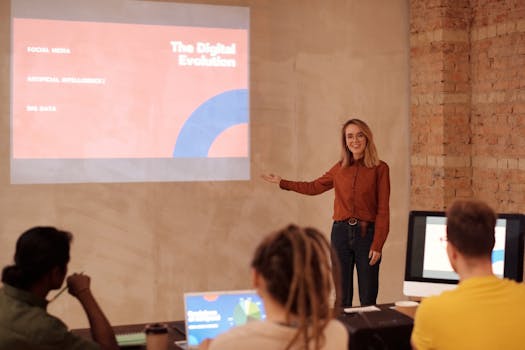
The Future of Education: What 2025 Holds
The future of education is rapidly changing, with advancements in technology and shifting societal needs. As we approach 2025, it’s essential to examine the trends and innovations that will shape the education sector. The future of education in 2025 will be characterized by increased use of technology, personalized learning, and a focus on skills development.
Section 1: Technological Advancements

Technology will continue to play a vital role in education, with the integration of artificial intelligence, virtual reality, and the Internet of Things (IoT). These advancements will enable educators to create immersive, interactive, and personalized learning experiences. Online learning platforms will become more sophisticated, allowing students to access high-quality educational content from anywhere in the world.
Key Trends in Education Technology

- Artificial intelligence-powered adaptive learning systems
- Virtual and augmented reality experiences
- Increased use of online learning platforms and MOOCs
- Integration of IoT devices in educational settings
Section 2: Personalized Learning and Skills Development

Personalized learning will become a cornerstone of education in 2025. With the help of technology, educators will be able to tailor learning experiences to individual students’ needs, abilities, and learning styles. The focus will shift from traditional subject-based learning to skills development, such as critical thinking, creativity, and problem-solving.
Key Skills for the Future

- Critical thinking and problem-solving
- Creativity and innovation
- Communication and collaboration
- Data analysis and interpretation
- Emotional intelligence and empathy
Section 3: The Rise of Online and Hybrid Learning

Online and hybrid learning will continue to grow in popularity, offering students flexibility and convenience. These models will enable educators to reach a wider audience, including those in remote or underserved areas. The lines between traditional and online learning will blur, with many institutions adopting hybrid models that combine the best of both worlds.
Benefits of Online and Hybrid Learning

- Increased accessibility and flexibility
- Personalized learning experiences
- Cost-effective and efficient
- Access to global educational resources and networks
Section 4: The Future of Education: Challenges and Opportunities

The future of education in 2025 will be shaped by both challenges and opportunities. Educators, policymakers, and technologists must work together to address issues such as equity, access, and digital divide. The opportunities, however, are vast, with the potential to create a more inclusive, effective, and sustainable education system.
Key Challenges and Opportunities

- Addressing equity and access issues
- Ensuring digital literacy and competency
- Creating inclusive and diverse learning environments
- Developing sustainable and effective education systems
Conclusion

The future of education in 2025 will be characterized by technological advancements, personalized learning, and a focus on skills development. As we move forward, it’s essential to address the challenges and opportunities that arise, working together to create a more inclusive, effective, and sustainable education system.





